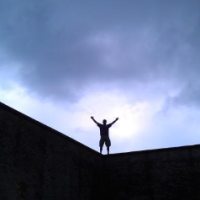Hunting and Fishing
Artist, Band or Public Figure
Artist, Band or Public Figure » Public Figure
Company, Organization, or Institution » Organization

Like (3)
Loading...

Will Jones
“Whiggism” created the USA in express covenant with the Deity as King, our Savior Jesus Christ: the Light of the Root of Jesse Who led we Gentiles born in God’s holy image, the “Regathered Israel,” Black of Sheba and White, with the Hebrew true Jew blood DNA proof, to shelter in God’s Promised Land ... View More






Never-married, childless, public, practicing whore AOC is demonic “atheist”/Satanist “Socialist” because she is pedo-demon priest sodomized demon-possessed, like Vatican-hireling Marx, as an “upgraded” false-Jew innocent Roman Catholic toddler of unrepentant Gog’s prophesied attack on God’s Repentan... View More













